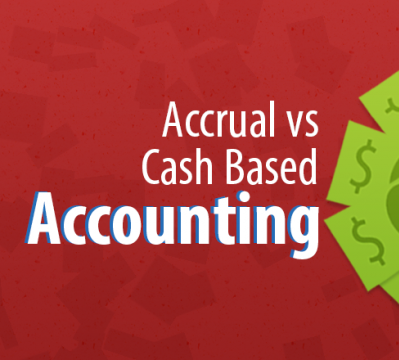Accrual Accounting vs. Cash Basis Accounting: An Overview
The main distinction between accrual and cash basis accounting is the timing of revenue and expense recognition. While the cash method records transactions when money is actually received or paid, the accrual method records transactions when they occur, regardless of cash flow.
Key Takeaways:
- Accrual accounting records revenue and expenses when transactions occur, before money is received or dispensed.
- Cash basis accounting records revenue and expenses when cash related to those transactions is actually received or dispensed.
- Accrual accounting provides a more accurate view of a company’s health by including accounts payable and accounts receivable.
- The accrual method is commonly used by large companies, especially publicly traded ones, as it smooths out earnings over time.
- The cash basis method is generally used by sole proprietors and smaller businesses.
Accrual Accounting
Accrual accounting records revenue when it is earned and expenses when they are incurred. This method captures financial transactions when they happen, regardless of cash flow. For example, revenue is recorded when a product or service is delivered to a customer, even if payment is received later. Similarly, expenses for goods and services are recorded when incurred, not when paid.
Advantages:
- Provides a more accurate picture of long-term profitability by including accounts receivable and payable.
- Smooths out earnings over time, offering a clearer view of financial performance.
Disadvantages:
- More complex to use, requiring additional accounting for items like unearned revenue and prepaid expenses.
- Can obscure short-term cash flow issues, as revenue and expenses are recorded before cash changes hands.
Cash Basis Accounting
Cash basis accounting records revenue only when cash is received and expenses only when cash is paid out. This method is simpler and easier to manage, making it popular among small businesses and sole proprietors.
Advantages:
- Simplicity: straightforward and easy to use.
- Easier cash flow tracking, as it records transactions only when cash changes hands.
Disadvantages:
- May overstate the health of a company that is cash-rich but has significant liabilities.
- Provides a less accurate picture of long-term profitability, as it doesn’t account for accounts receivable or payable.
Key Differences Between Accrual and Cash Basis Accounting
Accrual Method:
- Records accounts receivable and payable, offering a detailed view of profitability.
- Required by GAAP for companies that file audited financial statements.
- Can be more complex and may require additional staff.
Cash Basis Method:
- Simpler, recording transactions only when cash is received or paid.
- Beneficial for small businesses and sole proprietorships due to its simplicity.
- Not acceptable under GAAP for larger companies.
Tax Law Change
The Tax Cuts and Jobs Act increased the number of small business taxpayers eligible to use the cash basis accounting method. For 2024, small business taxpayers with average annual gross receipts of $30 million or less over the prior three-year period can use this method.
Special Considerations
Accrual accounting is more commonly used, particularly by publicly traded companies, because it smooths out earnings over time and provides a more accurate picture of financial health. Cash basis accounting, while simpler, can present more fluctuating views of profitability.
Example:
Imagine a business selling $5,000 worth of machinery. Under the cash method, this amount is recorded only when the payment is received. Under the accrual method, the $5,000 is recorded as revenue on the day the sale is made, even if payment is received later. Similarly, an electric bill for $1,700 is recorded as an expense under the accrual method when received, not when paid.
Conclusion
Accrual accounting and cash basis accounting offer different perspectives on a company’s financial health. Understanding these differences is vital for making informed financial and investment decisions. While most larger companies use accrual accounting, cash basis accounting remains a viable option for smaller businesses.
If you’re ready to explore the cost-saving benefits of outsourced accounting function, contact us today for a consultation. Let us help you unlock greater efficiency and profitability for your business.
Disclaimer: This article is for informational purposes only and does not constitute any professional advice. Feel free to contact us to consult with our professional advisors team for personalized advice and guidance.
Sources: https://www.iras.gov.sg/taxes/corporate-income-tax/income-deductions-for-companies/claiming-allowances/capital-allowances






